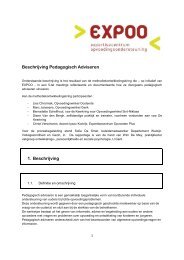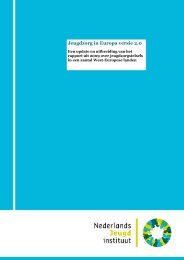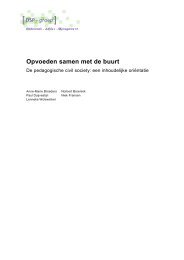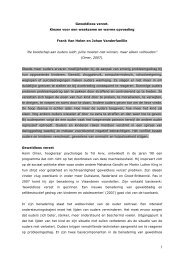Technique Is Not Enough (TINE) - British Psychological Society
Technique Is Not Enough (TINE) - British Psychological Society
Technique Is Not Enough (TINE) - British Psychological Society
- No tags were found...
Create successful ePaper yourself
Turn your PDF publications into a flip-book with our unique Google optimized e-Paper software.
cultural heritages lecture at them. The result can be an amplification of power disparities,which inadvertently can induce shame amongst participating parents. Shame is a deeplyinhibiting emotion and a strong internal component of the social stigmatisation process(Thornicroft, 2006). In such a situation the overt structural power discrepancies can bemitigated if the professionals adopt a ‘one down’ position by offering to support parents inhaving a voice or to lead with their children. On the other hand, power differentials canalso be exaggerated where professionals lecture to programme participants in front oftheir children, as though only their way is the right way. Embarrassment all round can bethe result. In co-produced programmes these issues are all but removed because of theirco-produced nature and the social structure that emerges from it. Similar issues mightemerge where race, class or gender might also be the issue rather than income levels.Enabling more fathers to attend programmes should be of the highest priority, includingrecognition that there may be a case for gender differentiated approaches in parentingsupport. Indeed, few RCTs report the gender make-up of their sample of parents but theyshould.The degree to which cultural sensitivity is of crucial importance is contentious. Someprogrammes will argue it is less critical than some other factors such as access to universalparenting skills but our reading of the research suggests these programmes have culturalsensitivity built in because of earlier refinement and adaptation. We find this to be truewhere there is use of social learning theory and so this is not surprising. The race, ethnicand socio-economic status match of group leaders also appear to be correlated with dropoutrates for low-income, marginalised, black and ethnic minority parents (Day et al.,2012).How to increase the likelihood of these kinds of approaches developing in any locality isnow looked at in a section on the importance of parenting programmes actively investingin developing local social capital.48 Professional Practice Board
















